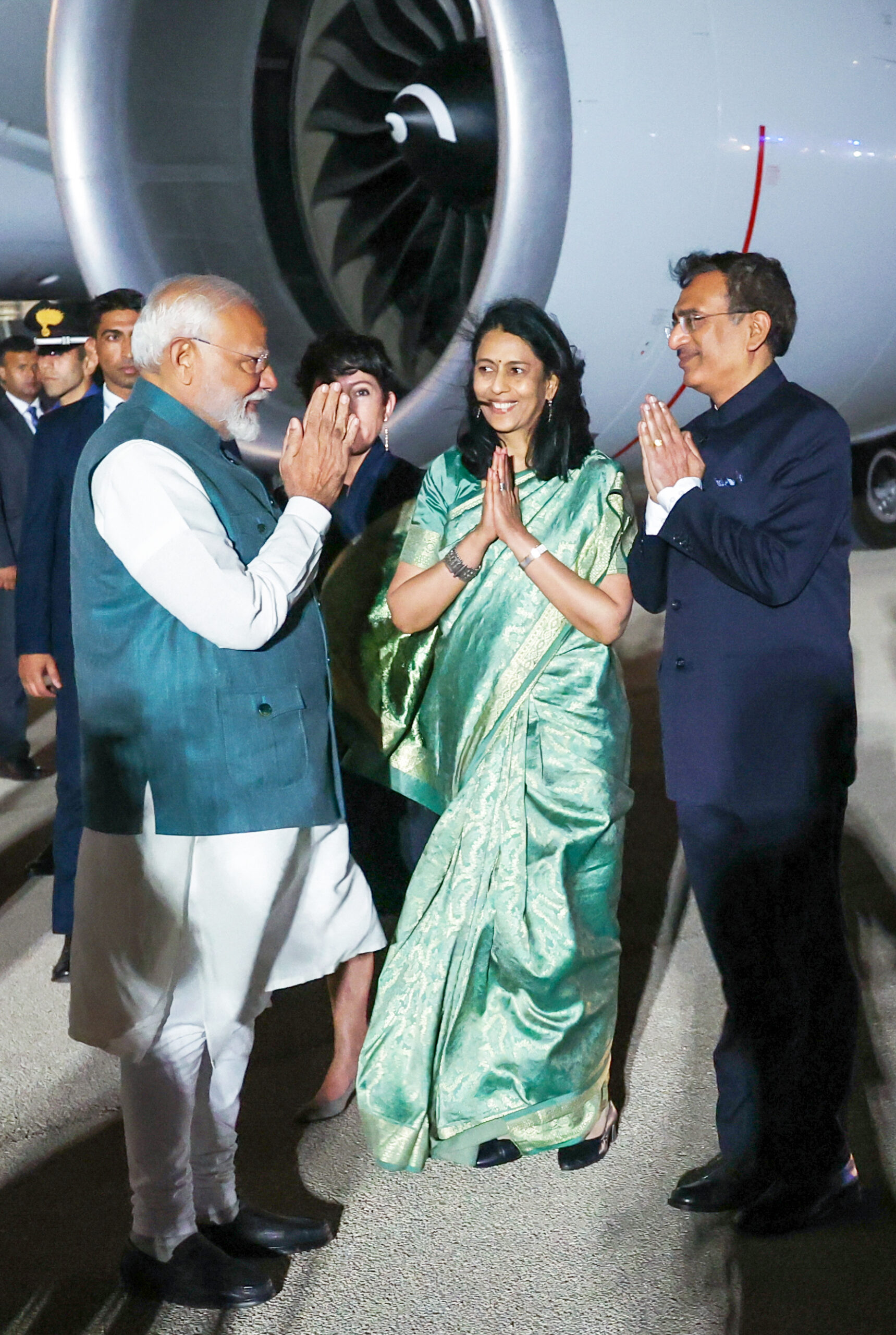ROME: ‘We are looking at broadening the overall defence engagement across various pillars.’
In an insightful conversation, India’s Ambassador to Italy, Vani Sarraju Rao discusses the key outcomes of Prime Minister Narendra Modi’s recent talks with Italian Prime Minister Giorgia Meloni on the margins of the G7 summit
Q: How do you assess PM Modi’s talks with Italian PM Giorgia Meloni? What were the key outcomes? In which specific areas can we expect marked momentum in the coming days?
A: PM Modi had an excellent meeting with Prime Minister Meloni. A leader-level rapport is always beneficial, enabling both governments to be more aspirational regarding the bilateral agenda. The two governments seek to do more in two or three key areas. One is the political dialogue, which they aim to maintain and continue, covering both bilateral and global issues.
Secondly, trade and investment ties between the two countries are still very low. There is a keen interest in diversifying these, and exploring more collaborations to benefit from each other’s technologies and complementary strengths. The defence and security domain is also a significant area of focus. All these areas saw exchanges of visits last year.
Lastly, migration and mobility is an area of mutual interest. Given the demographics of both countries, the exchange of professionals, researchers, and students will be immensely valuable for both sides.
Q: Enhancing defence industrial collaboration has become an important focus area for the India-Italy partnership. What can we expect in terms of defence collaboration?
A: We are looking at broadening the overall defence engagement across various pillars. One is, of course, the ministerial dialogue between the Raksha Mantri and his Italian counterpart, who visited here last year. Secondly, there is an institutional framework, a dialogue called the Joint Defence Committee, which met earlier this year, co-chaired by the Defence Secretary after a long time. Service-to-service exchanges are extremely important for defence cooperation. This includes participation in each other’s military exercises, port visits by ships, and training of each other’s officers. These are some of the pillars of our defence cooperation.
In addition to that, we are looking at how we can connect the defence PSUs and industries on both sides. Italy has certain niche capabilities, while India has strong manufacturing strengths. The objective is to leverage these two different ecosystems in a way that benefits both countries and economies.
Q: How do you see cooperation between India and Italy in the Indo-Pacific progressing? What can India and Italy do together in this region?
A: In recent years, Italy has focused more on the Indo-Pacific region, viewing India as a key and strategic partner in the Indo-Pacific, and a very important economic partner in Asia. This is evident not only in Prime Minister Meloni’s visits but also in the visits of Italian naval assets to India, including two expected this year. Maritime cooperation is crucial for both countries. Italy is among the Western countries that have joined India-led initiatives in our neighbourhood, such as the Indo-Pacific Oceans Initiative. They have also joined other key strategic initiatives like IMEEC and the Global Biofuels Alliance. The goal is to undertake joint activities in the Indo-Pacific, whether under the science and technology pillar of the IPOI, the International Solar Alliance, or other areas. It will be activity-oriented cooperation, and we need to map out some of these activities for the future.
Q: Are there any new areas we are exploring where we will see more action in the future?
A: Migration and mobility is an area where more discussions are taking place. We have agreed to hold the first meeting of the Cybersecurity Working Group very soon, so that could be another area of focus. In Europe, there is a lot of interest in working with countries like India on artificial intelligence due to concerns about its malicious use. With Italy, in particular, there is much to see and learn. They excel in sectors such as agriculture, food processing, automobiles, and space. These are some areas where we, as an embassy, would like to focus on building collaborations between the two countries.
Q: You have been here now for a couple of months, and you are fortunate to have the Prime Minister visit right at the beginning of your ambassadorial tenure. What is your sense of the image of India among the Italian elite and political establishment? Do they see India as a rising power that needs to be supported?
A: Italians genuinely like India and Indian culture. I think there is a lot of comfort in sharing similar values. India is seen as a very stable and mature democracy, and our recent elections have reinforced that image.
Secondly, in addition to being a country poised for robust economic growth, there is also a lot of respect for India regarding how we are leveraging digital technologies and tools to improve people’s lives. The success stories in India, such as UPI payments and financial inclusion, have made a very positive impression here. Our successful hosting of the G20 last year and India’s advocacy for the expectations and aspirations of other developing countries as a leader of the Global South have also been recognised here.
Overall, I see a lot of positivity and respect for India, acknowledging the journey it has made in the last couple of decades and its significant achievements. There is a strong desire to further enhance cooperation with India.
Manish Chand is CEO, Centre for Global India Insights, a think tank focused on global affairs and Editor-in-Chief, India Writes Network.

